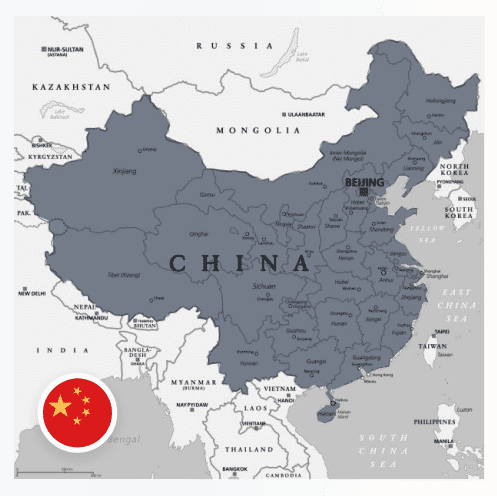Market Spotlight: China



With the second highest GDP in the world, China is ranked in the top quartile on the World Bank’s Ease of Business Assessment (32 of 190 countries). However, many foreign companies find it quite difficult to establish a business here because foreigners face complex permitting, licensing, and other registration requirements, and opaque laws and regulations, just to name a few. Once a company successfully registers, they are then often challenged by highly-localized consumer buying habits, strong local market competition, questionable intellectual property protections, human resources challenges, various localized regulations, and fragmented distribution channels, making it quite difficult to compete. Hiring legal experts and local partners to help your company set up and operate in China is vital.

Proficiency in English in China is average, with the EF English Proficiency Index ranking it 49th out of 112 countries. However, this ranking is generous because, while roughly ten million Chinese citizens can fluently speak English, this is equal to less than one percent of the total population. The greatest concentration of English speakers are found in metropolitan cities. Introducing English language studies at the elementary school level has recently been adopted as Chinese leadership recognizes the importance of English as the universal language of business and a way to remain globally competitive. While English fluency is on the rise, foreign executives should be equipped with interpreters and be prepared to adapt messaging to the local dialect. (Of note: While Mandarin and Cantonese are the most common of the Chinese dialect groups for business, there are seven, each with their own nuances).

Production costs in China have been rising for more than a decade and the COVID-19-related supply chain disruptions only accelerated the trend. The early 2022 lockdowns of Shanghai and Shenzen dealt another blow to an already severely disabled supply chain. Though China remains a global manufacturing powerhouse and still produces more than one-quarter of the world’s manufactured goods, the future remains uncertain. To remain competitive, the government is working to reinvigorate confidence in Chinese manufacturing. Even so, some companies have embraced nearshoring as their supply chain strategy and moved production operations closer to the consumer to save time and money. Some have relocated operations to other parts of Asia, Latin America, or parts of Europe. Manufacturing companies on the verge of entering a new market may reconsider China as a solution and contemplate Vietnam, Taiwan, Thailand, or Indonesia in Asia or Mexico, Costa Rica, or Colombia in Latin America as viable options.

Intellectual property protection should be a concern for every foreign company doing business in China. While there have been steps taken to improve legal protection of non-Chinese businesses, it remains widely known that China observes few laws that protect the intellectual property of foreign firms, and the laws that are observed are loosely enforced. Forced technology transfer (FTT), an enforced policy, compels foreign firms to divulge their owned technological assets in order to gain market access, leaving technology secrets vulnerable and easily accessible. We recommend always consulting with IP legal experts and brand monitoring services to protect your IP interests in China.

Despite its variety of issues, China must not be ignored. With a population of over 1.4 billion people, China remains an economic giant. E-commerce sales are booming, rising from $1.8 trillion in 2019 to a projected $3 trillion by the end of 2022. Online selling has the greatest potential for foreign firms searching for growth. A growing middle class, with increasing consumer purchasing power, in more than 100 cities (with over 1 million residents per) makes this sector exciting. As Chinese consumers gain greater access to technology (internet, mobile, etc.), especially in more rural regions, they will conduct business and buy products online with greater ease and at a faster rate. During pandemic lockdowns, the Chinese grew accustomed to spending from their home for convenience and from necessity. Targeting Chinese consumers, especially through online sales, advertising, and social media, could yield substantial success for your company.



